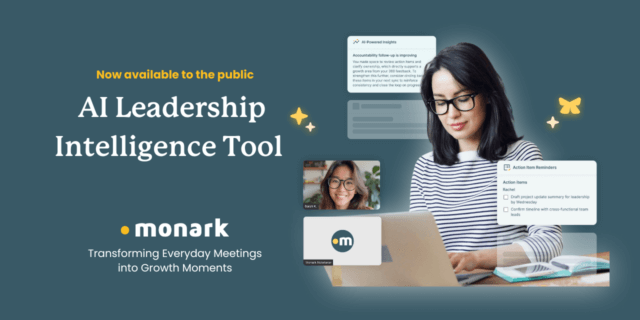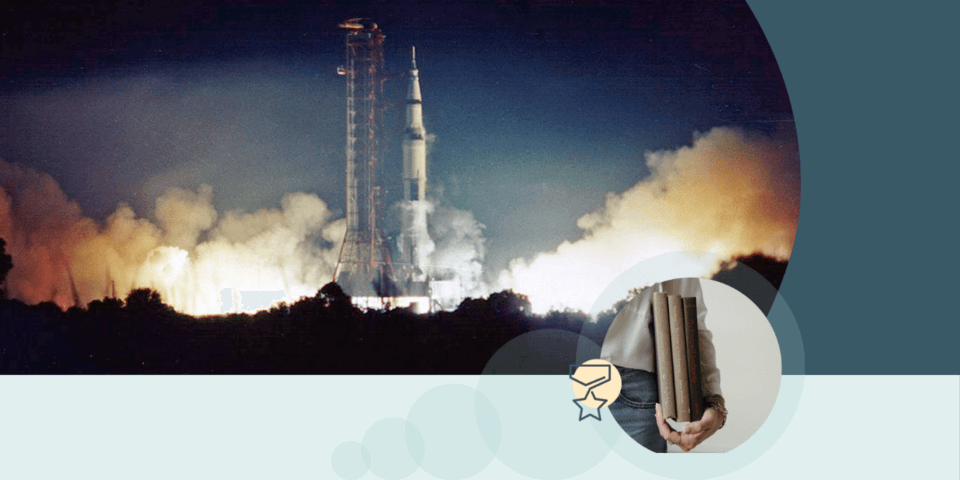
Houston, We Have a Solution: Navigating Challenges with Apollo 13’s Resilience

When the word challenge is thrown around, it often evokes frustration, reluctance, and even fear. And for good reason—it’s hard. When obstacles arise, it’s far easier to choose the path of least resistance than to push through discomfort and uncertainty. But challenges, whether large or small, are unavoidable. The real question is: when adversity strikes, how will you respond?
In leadership, responding to challenges isn’t optional, it’s essential. When your number is called, it’s not just hoped that you’ll step up, it’s expected. Leaders must be equipped to face business disruptions, interpersonal tensions, and crises with clarity and strength. Doing so requires more than tactical know-how; it calls for self-awareness, emotional regulation, cognitive flexibility, and a strong sense of purpose. These traits form the backbone of resilience and empower leaders to navigate turbulent times with confidence.
Monark’s TLDR
- Stay mindful and present to manage emotions and reactions
- Embrace discomfort as a springboard for innovation and growth
- Challenge negative thinking to foster resiliency
- Let personal purpose guide you through uncertainty
- Our learning path, Navigating Challenges, teaches you to thrive under pressure
Overcoming Adversity: Lessons from the Apollo 13 Mission
An example of navigating challenges comes from the Apollo 13 mission. In April 1970, halfway to the moon, an oxygen tank exploded, severely damaging the spacecraft and putting the lives of the three astronauts aboard at risk. This wasn’t just a technical malfunction; it was an unprecedented crisis that threatened to turn a routine space flight into a catastrophe.
The team at NASA’s Mission Control, alongside the astronauts, faced immense pressure. With power critically low and a damaged life support system, they couldn’t simply turn back. They had to invent solutions on the fly, with limited resources and the world watching. Through extraordinary ingenuity, teamwork, and grit, the ground crew and astronauts worked together to improvise repairs and navigate the crippled spacecraft. Against incredible odds, the astronauts were guided safely back to Earth, splashing down in the Pacific Ocean after a harrowing journey. This remarkable feat remains a testament to human problem-solving under extreme duress.
What Apollo 13 Teaches Us About Navigating Challenges
- Practicing Mindfulness: On Apollo 13, the team shifted from panic to mindful assessment after the explosion, calmly evaluating damage and identifying what they could control, which was crucial for their survival. Mindfulness is staying present and paying attention to how your environment impacts your behavior, allowing you to stay in the here and now. This is vital for reorienting yourself and centering your focus, not letting the past or future dictate your engagement. It has been shown that practicing mindfulness lowers stress and a better overall mood.
- Cognitive Flexibility: Helps you avoid a fixed mindset, pushing you to think outside the box and innovate. This is essential for adapting and sparking creativity at work. For example, during the Apollo 13 crisis, NASA engineers famously showed immense cognitive flexibility by using everyday items like plastic bags and tape to build a crucial, makeshift air filter to survive. A simple, less harrowing way to develop cognitive flexibility is by meeting new people. Being exposed to different cultures, people, and ways of thinking increases cognitive flexibility.
- Combating Negative Thinking: The Apollo 13 team never succumbed to despair or negative thinking traps, maintaining a solution-oriented mindset that prevented unproductive rumination despite their dire situation. Our brain can trick us into thinking traps not rooted in reality, leading to negative spirals. Challenging those thoughts helps you deal with stressors and work demands. A way to challenge those thoughts is by thinking about how we would tell this information to a friend. We tend to be calmer and rational if we’re thinking about how we would tell this to a friend.
- Purpose: For Apollo 13, the overarching purpose of bringing the astronauts home safely became the singular, unifying force for everyone involved, ensuring every action was aligned towards that critical objective. Your purpose is your unique guiding principle, central to your identity, driving you forward and bringing fulfillment to your career. By tapping into what truly drives you, you unlock how it applies to your work.
- Making Effective Decisions: Throughout the Apollo 13 crisis, Mission Control made a series of rapid, effective decisions under immense pressure, prioritizing and strategizing every choice to ultimately save the mission. Decision-making is dictated by context and urgency, with complex issues requiring structured approaches and simpler problems needing straightforward solutions that should be revisited at another time. Not every decision you make is going to pan out, but by providing a plan or structure, it surely increases the chance of it being an effective decision.
Our “Navigating Challenges” learning path provides the tools for individuals to effortlessly adapt to changes as they arrive, and shows the competencies and strategies needed to tolerate ambiguity and build resilience in the face of uncertainty.
Navigating Challenges: A Hands-On Approach
While high-stakes space missions may feel worlds away from everyday business, a lesson or two can be learned from Apollo 13’s success and applied to leadership. This learning path is designed not just to inspire but to equip individuals with real, repeatable tools to manage ambiguity, reduce reactivity, and foster lasting resilience.
By engaging in exercises to practice mindfulness, you’ll stay focused and present in your work. You’ll understand cognitive flexibility to adapt and innovate, while learning to silence negative thinking by challenging unhelpful thought patterns. This path also guides you to cultivate purpose by connecting daily tasks to larger aspirations, ultimately helping you make effective and impactful decisions by knowing when to apply structured or simple solutions.
This pathway provides confidence for new and current leaders, so they have a solid understanding of what it takes to tackle difficulties by focusing on how to self-regulate and manage through ambiguity. It empowers you to recognize that you’re in control of your destiny when faced with adversity.
What You’ll Learn in Navigating Challenges
This learning path focuses on key techniques to build your resilience and ability to adapt, including:
- Practicing Mindfulness: Learn to stay present, manage distractions, and respond thoughtfully rather than reacting impulsively.
- Embracing Flexibility in the Workplace: Develop cognitive flexibility to adapt to change, think creatively, and find innovative solutions.
- Silencing Negative Thinking: Identify and challenge common thinking traps, fostering a more positive and resilient mindset.
- Cultivating Purpose: Discover how your personal purpose can serve as a powerful anchor during times of uncertainty and stress.
- Effective and Impactful Decision-Making: Master structured and adaptive approaches to make sound choices, even under pressure.
At Monark, we believe navigating challenges isn’t about avoiding hardship—it’s about growing through it. This learning path shows you how to reframe adversity, embrace ambiguity, and become the kind of leader others look to when things get tough. Let the challenge shape you, not stop you.


